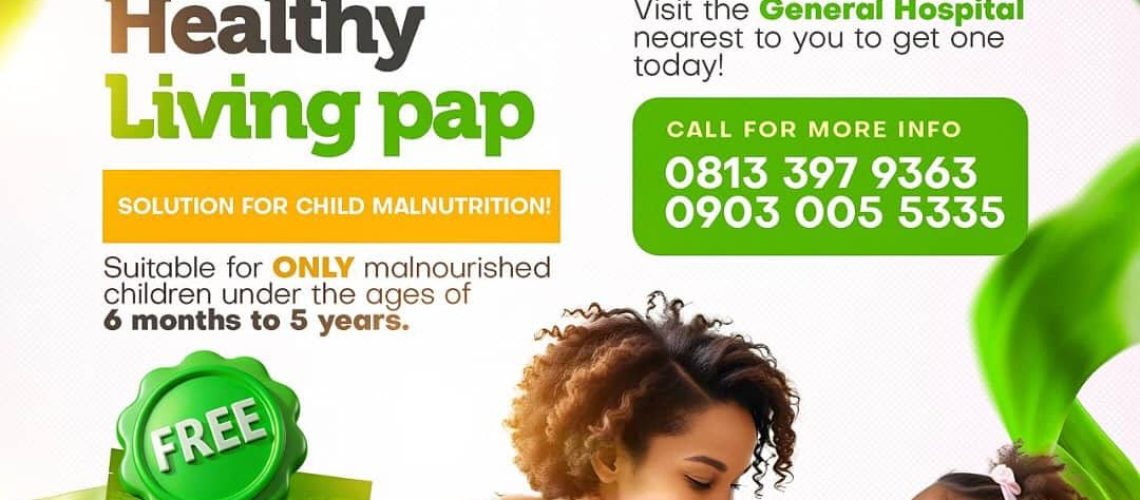In a significant move towards combating child malnutrition, Nonye’s Healthy Living Pap continues to be distributed across Anambra State. This initiative, aimed at reducing under-5 mortality rates, has made the product available at all Primary Health Care Centres in the state’s 21 local government areas, as well as general hospitals.
Nonye’s Healthy Living Pap is not just another supplement; it’s a meticulously formulated blend designed to tackle the nutritional deficits often seen in malnourished children. The pap includes a trifecta of nutrient-rich ingredients: groundnut, corn, and soybean. These components are chosen for their high content of essential nutrients like carbohydrates, healthy fats, fiber, protein, zinc, and various B vitamins, alongside iron, making it a powerhouse of nutrition.
The production process of Nonye’s Healthy Living Pap is under rigorous scrutiny to ensure it meets the highest standards of hygiene and safety. This commitment to quality ensures that the product is not only effective but also safe for consumption by vulnerable young children, providing parents with peace of mind.
This project aligns with broader governmental efforts to enhance child health outcomes in Anambra. By providing a free, nutritious supplement, the initiative directly supports the state’s health policies aimed at lowering the mortality rate among children under five, which has been a persistent challenge in many regions of Nigeria.
For parents or guardians looking to access Nonye’s Healthy Living Pap, the process has been simplified. Information on how to obtain the product is readily available through designated contact numbers listed on promotional fliers. This direct line of communication ensures that those in need can quickly get in touch and receive guidance on where and how to collect the pap.
The distribution of Nonye’s Healthy Living Pap is part of a larger campaign to educate the public on the importance of nutrition in early childhood development. By making this product free, the initiative removes financial barriers, making nutritional support accessible to even the most economically disadvantaged families in Anambra.
Health experts and nutritionists have praised the initiative for its potential impact. They emphasize that early intervention with such nutrient-dense foods can significantly alter the health trajectory of children, preventing not just malnutrition but also associated developmental delays and diseases.
The response from the community has been overwhelmingly positive, with many parents reporting visible improvements in their children’s health. Stories of children gaining weight, becoming more active, and showing better cognitive development have started to circulate, adding a human element to the statistical goals of the program.
However, the success of Nonye’s Healthy Living Pap also hinges on sustained community engagement and government support. Continuous education on nutrition, regular health check-ups, and ensuring the product remains accessible are crucial for long-term benefits.
As Anambra State continues to push forward with this initiative, the hope is that Nonye’s Healthy Living Pap will serve as a model for other states, demonstrating that with the right resources and commitment, significant strides can be made in child health and nutrition. This could potentially set a precedent for nationwide nutritional programs aimed at safeguarding the future of Nigeria’s youngest citizens.

